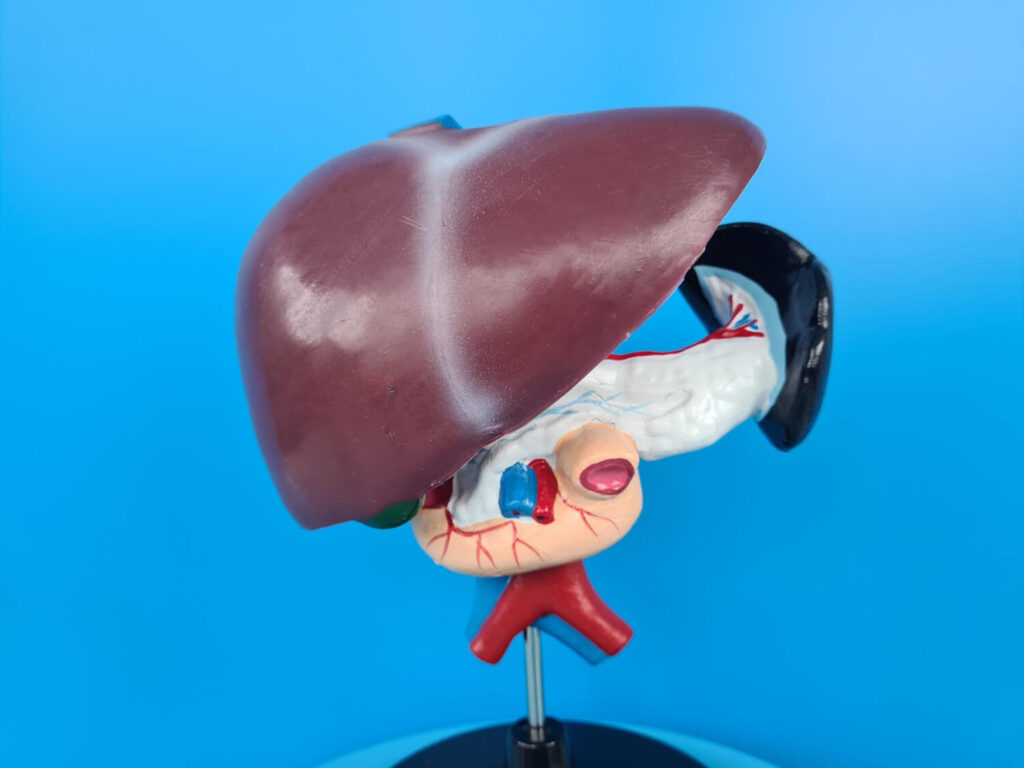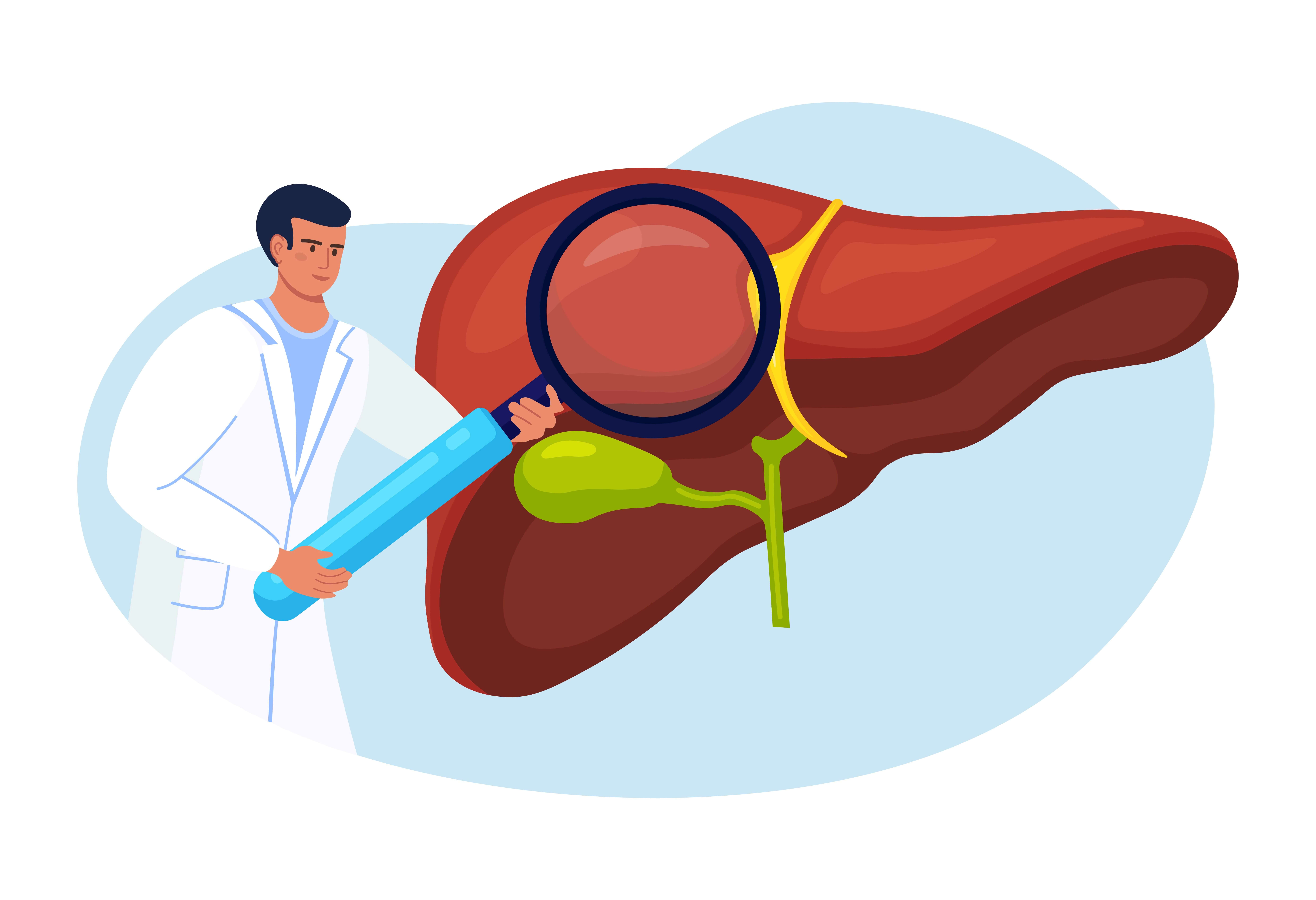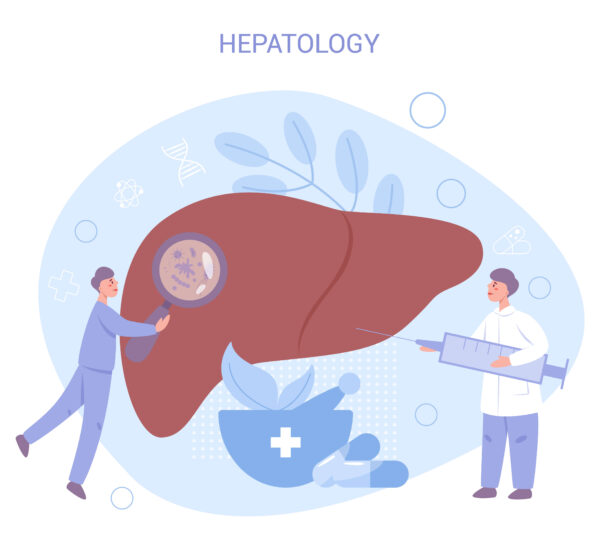Get insights into detecting cirrhosis of the liver symptoms. Learn what are the common warning signs and how to manage them in this blog!
The liver is a vital organ that performs many important functions in the body. When the liver is damaged due to cirrhosis, it can no longer perform these functions effectively, leading to a range of symptoms and complications. That’s why it is important to be vigilant about the early cirrhosis of the liver symptoms to prevent them before it worsens.
Cirrhosis of the liver is a serious condition that affects the normal functioning of the liver. It is a progressive disease that occurs when the liver becomes damaged and scarred over time. If you think your condition is related to this liver disease, then this blog is the right piece to read. Find out how to manage the condition through identifying the early symptoms today. Let’s begin!
Understanding Cirrhosis of the Liver

This liver condition involves healthy liver tissue that is replaced by scar tissue. The scar tissue disrupts the normal structure and function of the liver, leading to a range of symptoms and complications. Usually, the scar tissue forms as a result of long-term liver damage, which can be caused by a variety of factors. That includes the following factors:
- chronic alcohol abuse
- viral hepatitis
- fatty liver disease
- autoimmune hepatitis
Despite the liver’s ability to regenerate and repair itself, when it is subjected to chronic damage, it can no longer keep up with the rate of damage and the scar tissue begins to accumulate. As the scar tissue builds up, it replaces healthy liver cells, leading to a loss of liver function.
How Does Cirrhosis of the Liver Impact Liver Health
As mentioned, the scar replaces healthy liver cells. With this situation, the liver function is affected as the liver becomes progressively damaged and loses its ability to function properly. This can lead to a range of complications, including liver failure.
Liver damage caused by cirrhosis can affect the liver’s ability to perform vital functions, such as filtering toxins from the blood, producing bile for digestion, and storing vitamins and minerals. As a result, waste products and toxins can build up in the body, leading to further damage and a decline in overall health.
In severe cases, cirrhosis can progress to liver failure, which is a life-threatening condition. Liver failure occurs when the liver is no longer able to perform its essential functions. It can result in serious complications, such as fluid buildup in the abdomen, internal bleeding, and altered mental function. Thus, making it a health risk that needs to be monitored and addressed immediately to avoid health complications.
Cirrhosis of the Liver Symptoms
Early Symptoms of Cirrhosis to Watch For
Early detection of cirrhosis is crucial for effective treatment and management of the disease. While symptoms may not be evident in the early stages, there are some signs to watch out for. These can include:
- Unexplained weight loss
- Fatigue and weakness
- Loss of appetite
- Nausea or vomiting
- Abdominal pain or discomfort
Early treatment and management can help slow the progression of cirrhosis and prevent further liver damage. If you experience any of these symptoms, it is important to consult a healthcare professional for further evaluation.

Recognizing Severe Cirrhosis Symptoms
As cirrhosis progresses, the symptoms may become more severe and noticeable. It is important to recognize these symptoms and seek medical attention promptly. Severe cirrhosis symptoms may include:
- Jaundice (yellowing of the skin and eyes)
- Swelling in the legs and abdomen
- Easy bruising or bleeding
- Confusion or changes in mental function
- Unexplained weight loss
- Severe fatigue or weakness
Severe cirrhosis symptoms can indicate complications and require immediate medical attention. If you or a loved one experiences any of these symptoms, it is important to consult a healthcare professional.

The Consequences of Ignoring Advanced Symptoms
When the time comes and the symptoms progress more, it can lead to various complications. One of the possible consequences is internal bleeding. Cirrhosis can cause increased pressure in the blood vessels of the liver, leading to the development of enlarged blood vessels (varices) that can rupture and cause internal bleeding.
On the other hand, portal hypertension can also occur due to ignoring cirrhosis of the liver symptoms. This is a condition in which there is increased pressure in the portal vein, the blood vessel that carries blood from the intestines to the liver. The increased pressure can lead to the development of varices and other complications.
Lastly, a health risk involving the brain can occur, which is hepatic encephalopathy. Advanced cirrhosis can lead to this condition as the liver can no longer remove toxins from the blood, resulting in a buildup of toxins in the brain. Patients can suffer from confusion, personality changes, and even coma
How Early Detection Can Alter Disease Progression
There are several reasons as to why an individual must prioritize their health through detecting cirrhosis of the liver symptoms. For instance, if the liver is not functional, it can affect the body, as it can’t perform its role in the body. If the complication led to liver damage, the only way to save one’s life is through liver transplant.
Aside from that, pursuing early detection of the cirrhosis of the liver symptoms can help with securing the immune system. Chronic liver diseases like cirrhosis can affect the body’s defense. Thus, leading to the development of other conditions like hepatitis a, hepatitis b, hepatitis c, liver cancer, fatty liver disease, high blood pressure, heart failure, etc.
In short, the patient will be at risk if the disease is not detected and prevented.
When to Seek Help From A Hepatologist

If you suspect that you are suffering from cirrhosis, the best way to verify that is through checking the cirrhosis of the liver symptoms. If the early warning signs are present, patients can already consider that as a sign to seek immediate help.
Seeking help from a hepatologist, a specialist in liver diseases, is important for individuals who suspect or have been diagnosed with cirrhosis. These professionals have specialized knowledge and expertise in managing and treating liver-related conditions.
With their expertise, they can provide an accurate diagnosis about the patient’s help. The following procedures can be utilized during the process:
- blood tests
- imaging studies like ct scan, ultrasound, etc.
- liver biopsy
In addition to diagnosis, a hepatologist can provide ongoing management and care for individuals with cirrhosis. They can develop personalized treatment plans that may include medications, lifestyle modifications, and regular monitoring to assess liver function and detect any complications.
Managing Cirrhosis of the Liver Symptoms
Dealing with the symptoms of cirrhosis can involve various aspects such as lifestyle changes. This lifestyle change must occur, especially if the condition is deemed as severe. In that case, it is highly essential to avoid alcohol use as continuing to consume this beverage can harm the liver further.
Moreover, it is also important to follow the medication dosage that the doctor will prescribe. Usually doctors will recommend medications to address high blood pressure. Furthermore, steroid medication may also be prescribed to address the inflammation in the liver.
On the other hand, vaccines to address various forms of hepatitis are also recommended to manage the cirrhosis of the liver symptoms. It is crucial for individuals with cirrhosis to stay up-to-date on their vaccinations to protect their liver health.
Frequently Asked Questions
What are the most common causes of cirrhosis of the liver?
The most common causes of cirrhosis of the liver include chronic alcohol abuse, hepatitis B and C infections, fatty liver disease, and autoimmune liver diseases. These conditions can lead to liver damage over time, eventually progressing to cirrhosis if left untreated.
Early detection and timely intervention are crucial in managing cirrhosis and preventing further complications. If you suspect any symptoms or risk factors associated with cirrhosis, seeking help from a hepatologist is highly recommended to receive proper diagnosis and treatment.
What age group does liver cirrhosis commonly occur?
Liver cirrhosis commonly occurs in adults between the ages of 45 to 65, but it can develop at any age depending on the underlying causes such as alcohol abuse or viral infections. Screening for liver conditions is recommended for individuals with risk factors to prevent complications and ensure liver health.
Can too much alcohol result in cirrhosis?
Yes, chronic alcohol abuse is one of the most common causes of cirrhosis of the liver. Excessive and long-term alcohol consumption can lead to liver damage and eventually progress to cirrhosis if left untreated. It is important to moderate alcohol intake and seek medical help if you suspect any symptoms related to liver problems. Preventative measures and early intervention play a crucial role in managing liver health.
Final Takeaway
Knowing the gravity of the cirrhosis of the liver symptoms can help prevent health complications like liver damage. That can only happen by learning to recognize these warning signs and understand how to manage them.
Cirrhosis of the liver is a serious condition that requires vigilance and proactive management. Its included risks can put the patient’s life at stake if the symptoms progressed further. It’s time to empower yourself to take control of your liver health.Remember, early detection plays a crucial role in effective disease management. Stay informed, prioritize regular check-ups, and make informed lifestyle choices to safeguard your liver health for a better quality of life. Book an online consultation or meet with a hepatologist at the nearest local health center in your community.
Cirrhosis of the Liver Quiz
Test your knowledge about liver cirrhosis symptoms, causes, and prevention
Concerned about liver health?
Consult with a hepatologist for proper evaluation and personalized care.
Find a Hepatologist

